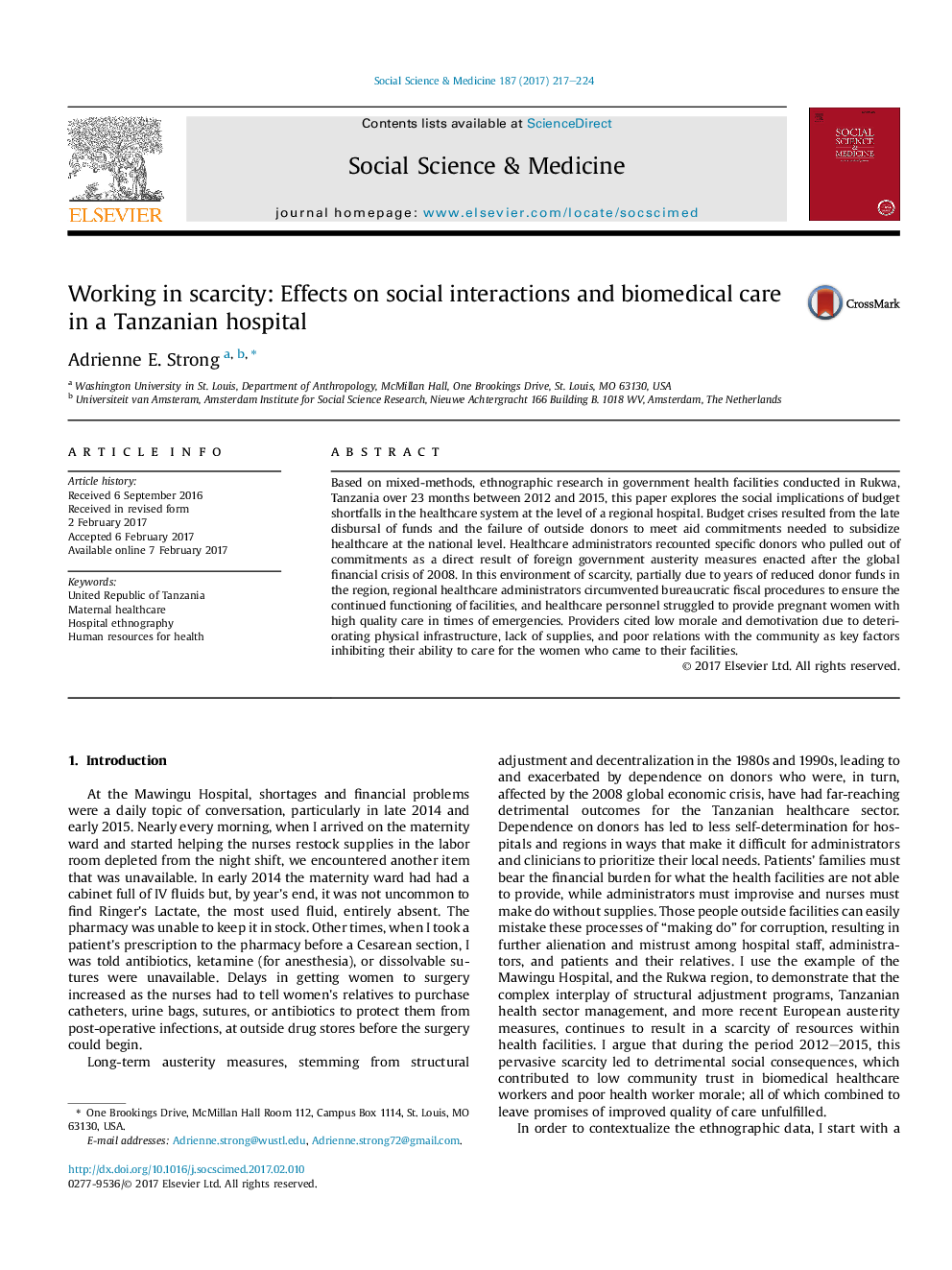| Article ID | Journal | Published Year | Pages | File Type |
|---|---|---|---|---|
| 5046443 | Social Science & Medicine | 2017 | 8 Pages |
â¢Healthcare suffers as nurses bear the brunt of the effects of supply shortages.â¢Complex history of scarcity increases social friction, mistrust of health services.â¢Competing fiscal demands and underfunding continue to constrain quality of care.
Based on mixed-methods, ethnographic research in government health facilities conducted in Rukwa, Tanzania over 23 months between 2012 and 2015, this paper explores the social implications of budget shortfalls in the healthcare system at the level of a regional hospital. Budget crises resulted from the late disbursal of funds and the failure of outside donors to meet aid commitments needed to subsidize healthcare at the national level. Healthcare administrators recounted specific donors who pulled out of commitments as a direct result of foreign government austerity measures enacted after the global financial crisis of 2008. In this environment of scarcity, partially due to years of reduced donor funds in the region, regional healthcare administrators circumvented bureaucratic fiscal procedures to ensure the continued functioning of facilities, and healthcare personnel struggled to provide pregnant women with high quality care in times of emergencies. Providers cited low morale and demotivation due to deteriorating physical infrastructure, lack of supplies, and poor relations with the community as key factors inhibiting their ability to care for the women who came to their facilities.
